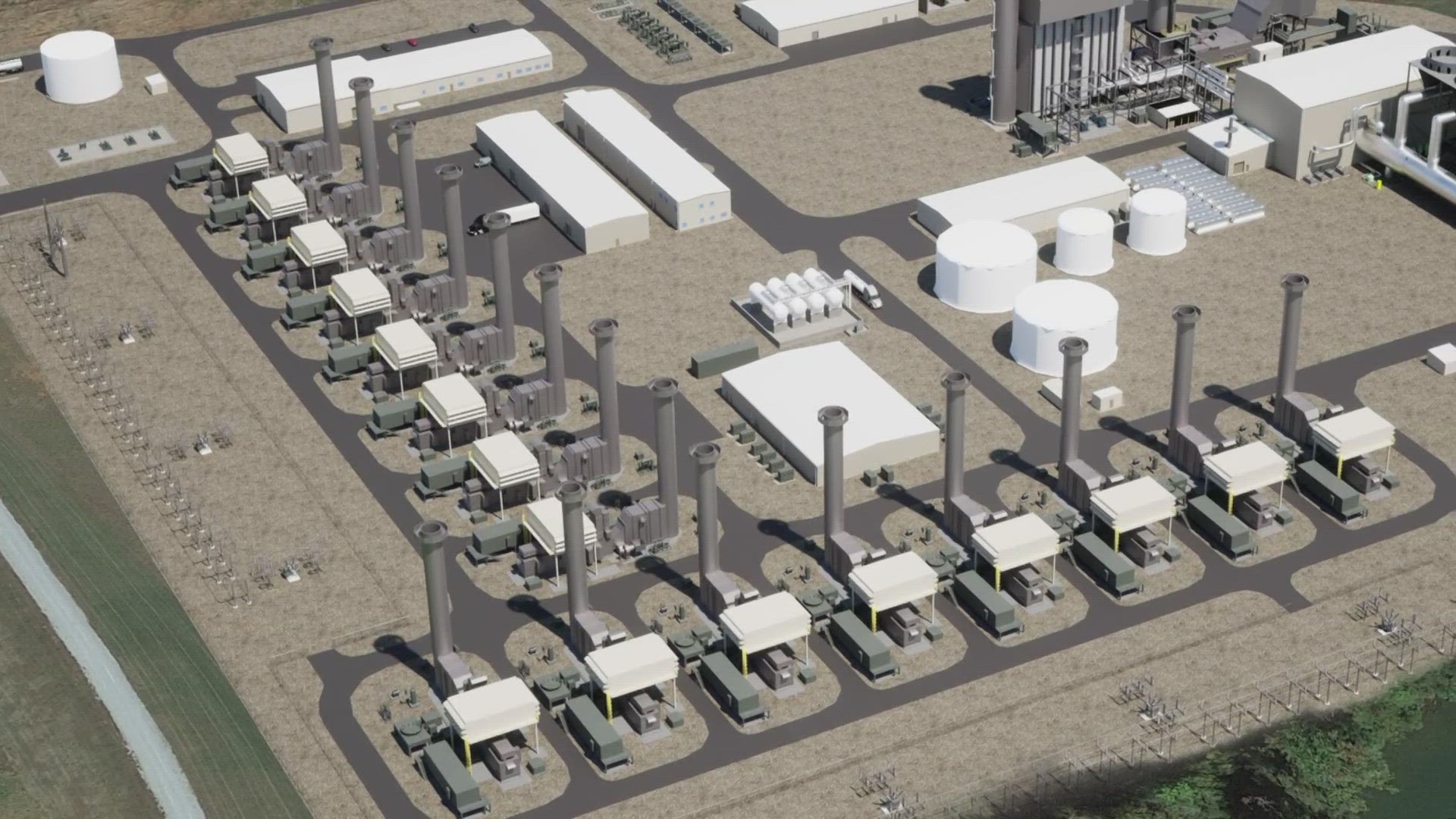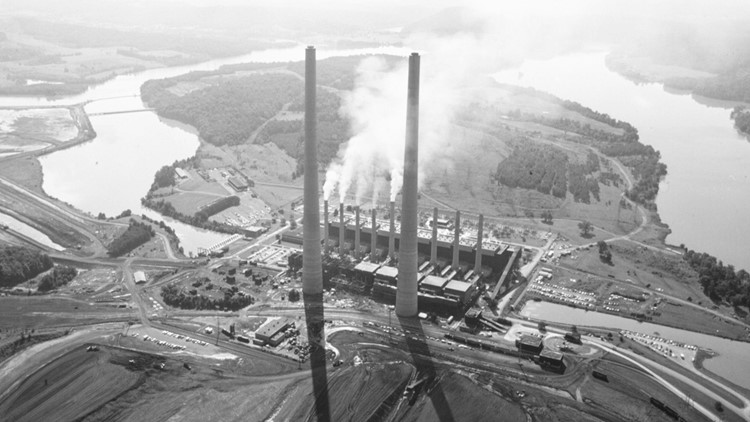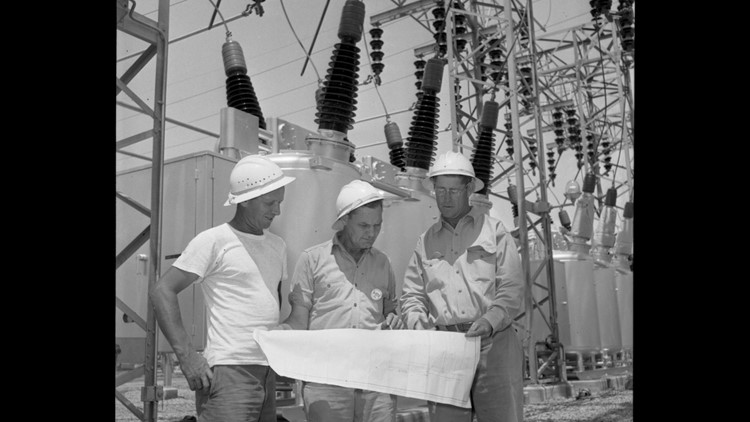KINGSTON, Tenn — TVA is unveiling long-awaited plans for the aging Kingston fossil plant -- construction of an "energy park" that will feature solar generation, battery storage and a natural gas-fired power producer.
The utility giant announced its plan Tuesday.
TVA President and CEO Jeff Lyash sat down with WBIR to explain TVA's vision for the site, whose decades of operation on the Clinch River near Kingston include providing power to Oak Ridge National Laboratory and a 2008 coal ash spill disaster that underscored one of the environmental hazards of coal.
Lyash didn't say what the project would cost. But he does forecast it'll come in "under budget and ahead of schedule."
He said the transformation is a "significant" decision for TVA and the approximately 10 million people in its seven-state service area. TVA is working to retire coal-powered plants and reduce carbon emissions that go into the environment.
TVA anticipates becoming more reliable in power deliveries with the park concept. It also wants to lean more on renewable sources, such as the sun, to cut back on greenhouse gases.
"It helps us maintain power prices affordable," he said. "It helps keep the power system, especially here in Eastern Tennessee, reliable and resilient, and it helps reduce carbon emissions from that site by 60 percent. So, it serves all our missions."

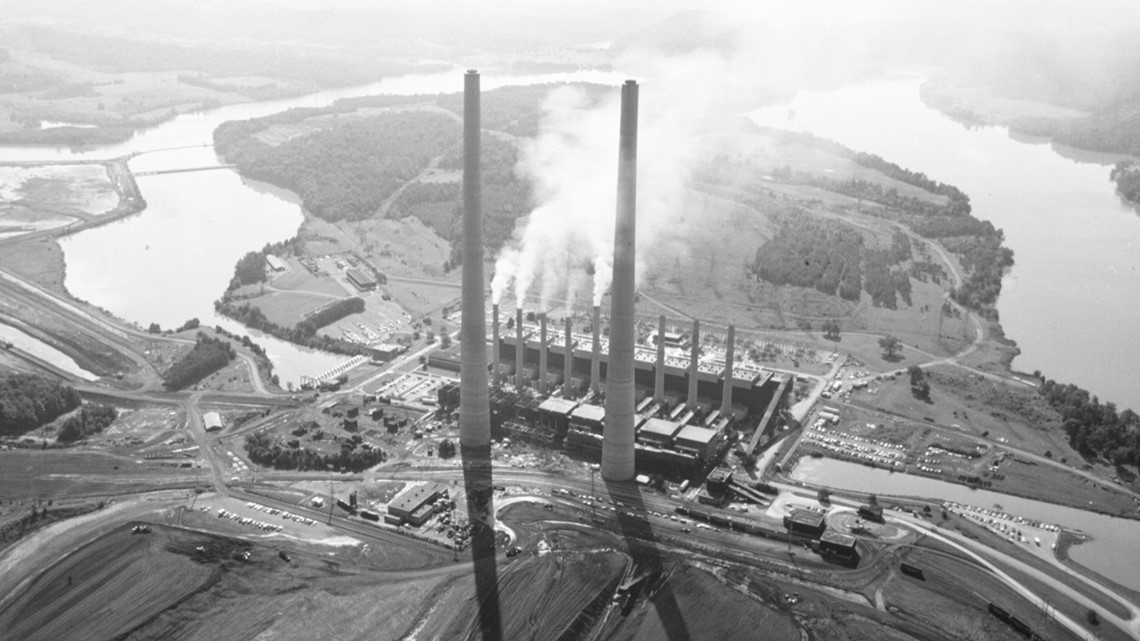
For the immediate future, the Kingston coal-fired plant will remain in service, he said.
The plan for the roughly 800-acre is to install solar, battery energy storage and aeroderivative gas turbines as well as a natural gas-fired "combined cycle plant". TVA already operates such gas-fired plants including in Kentucky.
Lyash said they're more nimble than coal and able to fire up quickly as needed. The park resources are expected to integrate with each other and respond at peak demand times, such as sharp demands for power in severe weather cycles.
The utility estimates some 1,000 to 1,500 construction jobs will be created over the anticipated three years it takes to build the park. The goal is to finish by the end of 2027.
"Then, we will retire the coal units," he said. "They must be replaced before they can be retired."
It's expected to take about two years to dismantle the old coal units. It'll require perhaps 150 people to decommission the old works, Lyash said.
Kingston opened in the mid 1950s. At the time it was the largest coal-fired plant in the world, according to TVA.
The plant's giant smokestacks are landmarks visible for miles across the Tennessee Valley.
In December 2008, it was the site of a horrific environmental disaster. A dike holding coal sludge - the byproduct of coal burned to generate power - broke, inundating the surrounding countryside and waterways.
TVA's Kingston power plant through the decades
Clean-up cost more than $1 billion. Dozens of workers hired to clean up the mess say they ended up suffering numerous health problems including cancer. Some clean-up workers died from exposure to the coal ash, their families say.
Their allegations resulted in years of litigation against the firm hired by TVA to perform the cleanup. Last year, workers and their families reached undisclosed, out-of-court settlements in federal court.
The spill predates Lyash's time leading TVA.
"That was certainly a tragedy and I think, looking back at it historically, TVA took responsibility and implemented a clean-up program there that puts the environment in a better position than it was before the spill," he said.
He said TVA wants to continue to be partners with the community that includes the plant.

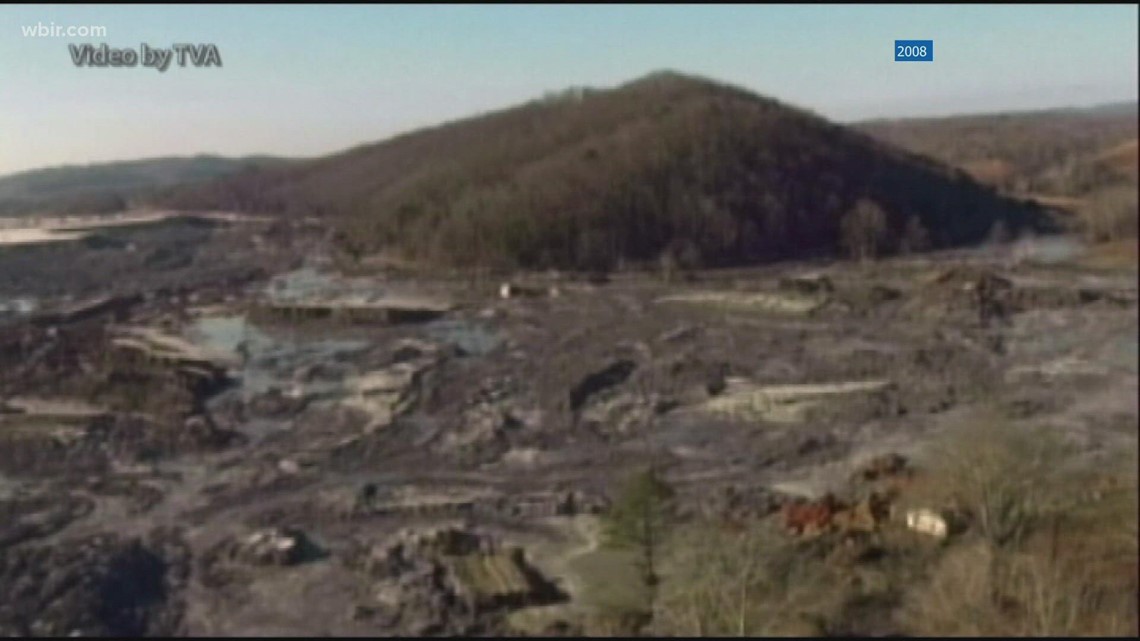
"They should expect us to be responsible, great neighbors just as they always have been for us," Lyash said.
In the lifetime that the coal-fired plant has left, he said, TVA will dispose of residual wastes appropriately.
"We will continue to manage those assets," he said. "We'll properly close those impoundments, working with (the Tennessee Department of Environment and Conservation) here in Tennessee for the long term."
Lyash said he views use of natural gas in the energy park as a "bridge" resource. For one thing, it helps TVA speed up the end of coal used to fire plants.
The Southern Environmental Law Center, one of TVA's sharpest critics through the years, has condemned any plan for a gas plant at Kingston. Such a facility will "handcuff customers to paying expensive fossil fuel prices for decades" as well as carry on the use of fossil fuels that pollute the air and aggravate climate change, the center, Appalachian Voices and Sierra Club said last year.
On Tuesday, SELC and the conservation group Appalachian Voices called TVA's announced plan "dirty and expensive". The utility is using faulty data to tout the gas plant.
In the years to come, TVA will look to increase reliance on nuclear power and renewables while also aiming to sharply cut the release from plants of carbon into the atmosphere.
TVA supports and is engaged in research to develop clean hydrogen energy sources and the "carbon capture" of TVA plant emissions, he said.



